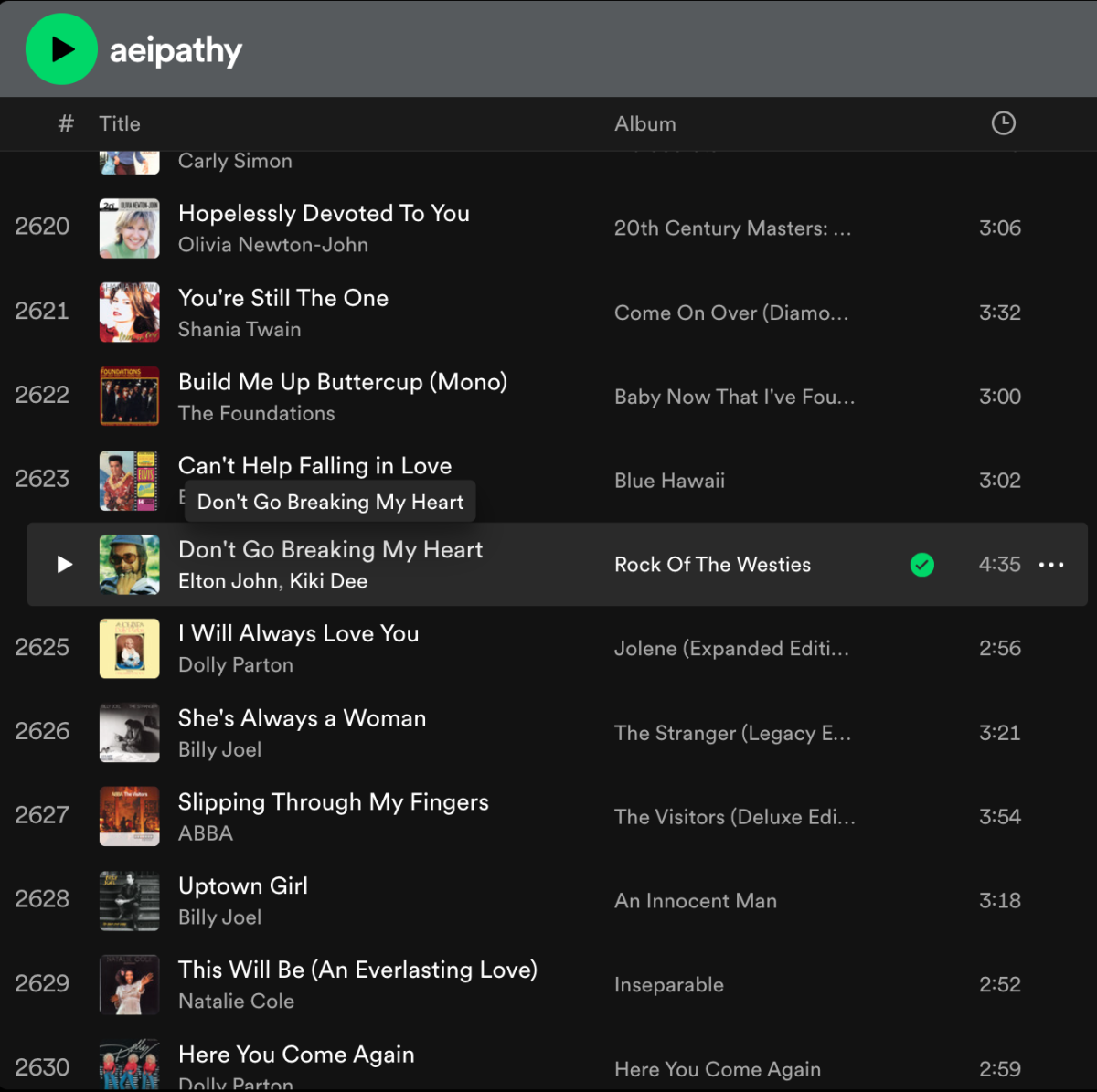I love music—yet another reference to my 3,400-song playlist—but what people don’t understand is that I don’t primarily listen to music that was released recently. Yes, I listen to current music a fair bit, but anything from the 1920s all the way up to today is my kind of music.
I was raised on the music my parents grew up with, as well as the music their parents and grandparents grew up with. This is the catalyst for my love for the art as a whole, but it’s more than just a cool beat or fun lyrics: it’s an intrinsic, tacitly understood set of notes in combination with words and storylines and pure emotion.
I’ve met very few people who actually share this infatuation—many say they do, but oftentimes it’s clearly not fully genuine, even if they insist it is, and that’s not a fault of anyone. Liking old music is one thing, even preferring it over anything new; however, there is something else to be said about the fervidity and heartfelt passion shared by these artists across generations to come.
With that being said, I’m not discrediting anybody’s passion for any certain type of music; rather, I want to bring light to the idea that one cannot ever truly appreciate modern music without first appreciating the older counterparts. Every single artist of today has been prompted in one way or another by one from yesterday, and that is something I find to be so beautiful.
The part that I hate, though, is that nobody of this generation ever gives credit to the inspirations themselves, only what they inspired.
Take Little Richard, for starters; before him, in the mid-1950s, nobody had ever seen a man—let alone a Black man—act, dress, and sing so flamboyantly and pridefully. He was the founding father of modern rock and roll, and he inspired more influential artists who always get the credit.
He directly influenced The Beatles—perhaps more heavily than anybody—and some of the most talented musicians whom I love so deeply, like Otis Redding, Creedence Clearwater Revival, Led Zeppelin, Elton John, Queen, Prince, and more.
It’s not just Little Richard, though; Bob Dylan, who’s often considered to be quite mediocre, inspired so many other artists who ended up becoming more successful than him, like Jimmy Hendrix, Johnny Cash and June Carter Cash, Neil Young, Townes Van Zandt, Joni Mitchell, and, again, The Beatles.
Essentially every artist of this day and age has either taken direct inspiration or covered a song written prior, but people never realize or care to put those pieces together.
The most prominent example I’ve seen of this recently is a song I’ve listened to for years: “Clay Pigeons.” On TikTok, Michael Cera’s rendition of the song has blown up over the past few months, but nobody ever recognizes that John Prine–who, might I add, I love with my whole heart–is the original singer. Same with Miley Cyrus’s version of Blondie’s “Heart of Glass” and Adele’s cover of “Make You Feel My Love,” originally performed by the aforementioned Bob Dylan.
Sometimes, the covers are simply more enjoyable than their classic counterparts—like Johnny Cash’s version of Nine Inch Nails’ “Hurt”—but it is unrealistic to believe that they could have put their own spin on the song if it had never been created a certain way in the first place.
Regardless, here’s my hot take: classic music, specifically from the 1920s to the early 2000s, always has been, is, and always will be, infinitely better.
So much of our current music culture revolves around superficiality and cliches. Obviously, the time periods from which the old music comes were far from perfect, but it’s so much more humane and emotionally driven. Specifically, the love songs have so much substance, and I’ve found that the most hard-hitting love songs of today have direct ties to historically-released music. Albeit in the background music, the lyrics, or whatever else—old music is simply better.
Love songs back then weren’t just about “Oh, this person is so pretty;” look at “Annie’s Song” by John Denver. The very first verse says, “You fill up my senses / Like a night in a forest / Like the mountains in springtime / Like a walk in the rain / Like a storm in the desert / Like a sleepy blue ocean / You fill up my senses.” He’s so enamored with the woman he loves that every sense is involved; the love he has for her is manifested physically in every possible way. I have no words for the way this song makes me feel, and that’s something you just don’t see that much anymore.
This isn’t a piece for me to share my opinion and shut down all others—that’s not what I want—but, I do believe that it’s a clear fact that you cannot appreciate new music without first appreciating its origins in the classics.



























































































